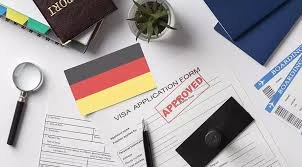Germany has quietly become one of the most attractive countries for freelancers and digital nomads owing to its Freelancer Visa (Freiberufler) and Self-Employed Visa (Gewerbe), which allows foreign nationals to legally work, live, and eventually settle in Germany.
These visas offer a way for writers, artists, engineers, or entrepreneurs to set up their professional life in Germany, without needing to be tied to a traditional employer.
Germany Freelancer Visa
The Germany Freelancer Visa, officially known as the residence permit for freelance employment, is for professionals who fall under Germany’s “liberal professions” category. These include:
- Artists and musicians
- Writers and journalists
- Engineers and architects
- Healthcare professionals (e.g. physiotherapists, nurses)
- Language teachers and interpreters
- IT specialists and consultants
This visa allows you to legally offer freelance services to clients in Germany or abroad while residing in the country. For professionals over 45, Germany requires proof of pension provisions, this is to ensure long-term stability.
Benefits of the Germany Freelancer Visa
- Live and work independently in Germany
- Access to the EU Schengen Zone for travel
- Initial visa valid for up to 3 years, extendable
- Pathway to permanent residency after 5 years
- Tax benefits for freelancers
- Family reunification options available
Germany Self-Employed Visa
The Germany Self-Employed Visa (Gewerbe) is geared toward entrepreneurs and startup founders.
Key requirements include:
- A viable business plan
- Proof of economic benefit or regional demand
- Capital investment or access to funding
- Ability to support yourself and any dependents
If your business is successful, your visa can be extended beyond the initial 3 years. After 5 years, you’re eligible to apply for a settlement permit, which is permanent residency.
Who Can Apply
These visas are open to citizens from non-EU countries, including:
- United States
- Canada
- United Kingdom
- Australia and New Zealand
- India
- South Africa
- Brazil and many others
Citizens from countries with visa-free access to Germany for 90 days can apply for the freelance visa after arriving in Germany while others must apply before entering the country through their local German embassy or consulate.
How to Apply for a Freelancer Visa in Germany
The process depends on your nationality and specific profession, but here’s a general step-by-step:
- Check Eligibility: Determine if your profession qualifies as freelance or self-employed under German law.
- Prepare Your Documents: Typical documents include:
- Completed visa application form
- Valid passport
- Detailed business plan
- Professional portfolio (for artists/journalists/etc.)
- Proof of financial means
- Letters of intent from German clients
- Proof of health insurance
- Pension plan (if over 45)
- Book an Appointment at a German Embassy: Depending on your country, this may need to be done weeks in advance.
- Attend the Visa Interview: Be ready to explain your freelance work, financial projections, and why you want to work in Germany.
- Wait for Approval: Processing times can vary, but it usually takes 4–12 weeks.
Visa Fees and Validity
When applying for a freelancer or self-employed visa in Germany, the cost is relatively low compared to other countries.
- Freelancer Visa (Freiberufler): €80
- Self-Employed Visa (Gewerbe): €90
These are one-time application fees paid when you submit your documents. In addition, if you apply for a residence permit, the fee can go up to €100, and a settlement permit (permanent residency) may cost up to €147.
The initial visa is usually valid for up to 3 years, depending on the business plan and financial situation. If your freelance or business activity is successful, you can extend your residence permit. After 5 years of continuous stay and work, you’re eligible to apply for a settlement permit, giving you long-term residency in Germany.

